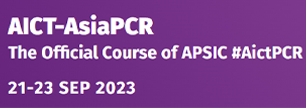


- NEWS
-
-
Scientific LibraryAcute Coronary Syndrom ASCVD Prevention Bifurcation Stenting Cardio-Oncology Congestive Heart Failure DAPT Duration Drug Coated Balloon Fractional Flow ReserveCases VideosE-LearningIndustry Insights
- LIVE REVIEW
-
 Article Link
Article Link

Primary Results of the EVOLVE Short DAPT Study: Evaluation of 3-Month Dual Antiplatelet Therapy in High Bleeding Risk Patients Treated With a Bioabsorbable Polymer-Coated Everolimus-Eluting Stent
AJ Kirtane, R Stoler, R Feldman et al.
KEYWORDS
high bleeding risk; shorter-duration DAPT; 3-month DAPT versus vs. 12-month DAPT
BACKGROUND - Prolonged dual antiplatelet therapy (DAPT) after percutaneous coronary intervention is associated with increased bleeding, despite a reduced incidence of ischemic events. The SYNERGY everolimus-eluting stent is a thin-strut platinum-chromium stent that elutes everolimus from a thin abluminal layer of bioabsorbable polymer. These design elements may facilitate rapid endothelialization and enable shorter-duration DAPT.
METHODS - EVOLVE Short DAPT prospectively evaluated the safety of 3-month DAPT in high bleeding risk patients treated with the SYNERGY everolimus-eluting stent, enrolling 2009 patients at 110 global sites. Patients with acute myocardial infarction or complex lesions were excluded. After percutaneous coronary intervention, patients were required to take DAPT (aspirin+P2Y12 inhibitor) for 3 months, except those on chronic anticoagulation in whom aspirin was optional. Patients free of events (stroke, myocardial infarction, revascularization, and stent thrombosis) who discontinued P2Y12 inhibitor at 3 months, but continued aspirin, and had at least 1 year of follow-up or an end point event were included in the primary analysis. Two powered coprimary end points were (1) death/myocardial infarction compared with a historical control and (2) study stent-related definite/probable stent thrombosis compared to a performance goal.
RESULTS - The analysis population consisted of 1487 patients. The adjusted rate of death/myocardial infarction between 3 and 15 months was 5.6% among patients receiving 3-month DAPT versus 5.7% patients in the 12-month DAPT control (propensity adjusted difference=−0.12%; 97.5% upper bound=1.63% which was less than the prespecified margin of 2.52; Pnon-inferiority=0.0016). The rate of study stent-related stent thrombosis between 3-15 months was 0.2% in the 3-month DAPT group (97.5% upper bound=0.63%; P=0.0005 for comparison to 1% performance goal).
CONCLUSIONS - Favorable rates of ischemic outcomes were observed among selected high bleeding risk patients undergoing percutaneous coronary intervention with the SYNERGY everolimus-eluting stent who tolerated 3 months of P2Y12 inhibitor and then discontinued it, supporting the safety of abbreviated DAPT with this stent platform.
REGISTRATION - URL: https://www.clinicaltrials.gov; Unique identifier: NCT02605447.




















